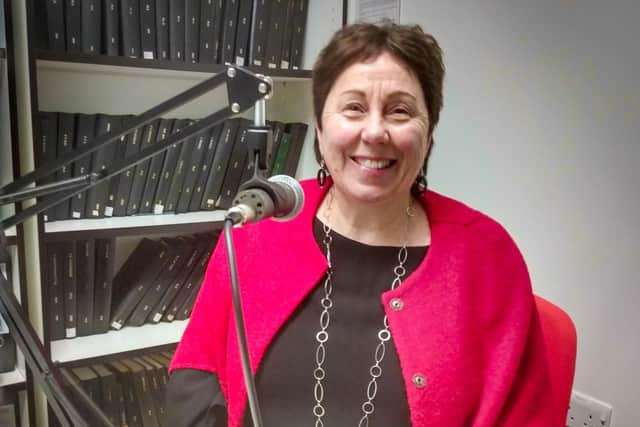Meet the women working to develop vaccines and build flood defences who are encouraging more girls into STEM careers
But as teachers and university admissions service UCAS reveal an uptake in female students applying to health-related university courses in the wake of the pandemic, The Yorkshire Post spoke to women working in STEM (science, technology, engineering and mathematics) fields about their chosen careers and why more girls should consider becoming coders, virologists and dentists.
Professor Nicola Stonehouse is a leading virologist based at the University of Leeds whose research has focused on the protein make up of viruses and is currently overseeing the development of a new vaccine for polio.
Advertisement
Hide AdAdvertisement
Hide AdShe started out by studying a degree in biological science at the University of East Anglia, before later doing a PhD in Swansea. Prof Stonehouse moved to Yorkshire in the 1980s where she started out as a lab technician and discovered her interest in researching viruses.


"Viruses are fascinating because you can learn about so many different things by looking at them," she said.
"There's studying infections, looking at therapies, vaccines and even evolution.
"Virology has very much entered the public realm because of the pandemic. But there is still so much to find out and basic questions we don’t know the answer to.
Advertisement
Hide AdAdvertisement
Hide Ad“There will always be the need for better drugs, better vaccines. And there will be other pandemics in the future.”


She said more and more women were getting into the field at undergraduate level, but that "we lose women the higher up you go".
"There are very few of us left in the top levels," she said.
From infections to infrastructure, Milly Hennayake is a civil engineer based at Arup in Leeds who has helped design flood defence mechanisms in the city centre.
Advertisement
Hide AdAdvertisement
Hide AdEngineering remains an industry dominated by men, with women making up only 12 per cent of the field according the Royal Academy of Engineering.


Ms Hennayake said there was a misconception of engineers being "a man with a spanner in his hand" but that it was a diverse field with jobs requiring both science and creativity.
"There are so many things engineering extends to all sorts and you can do whatever you are interested in. It could be food, or fashion or vaccine production.
"The main concept is solving the problems of day-to-day life."
Advertisement
Hide AdAdvertisement
Hide AdAs data and computer coding becomes more and more part of our everyday lives, more girls are also being encouraged into careers in computer science.
Sowmya Mony, from Sheffield, was a website developer who retrained to teach computer science through the Transition to Teach programme, with the aim of inspiring more girls to take up the subject.
“When I was younger, I was lucky that my brother was into computers and did an undergraduate degree in computer science. Computers and coding was quite normal to me but not everyone has that.
“There can still sometimes be the perception that only boys like gaming and computing, and I hope that the pandemic and children’s greater exposure to technology, will encourage more girls into STEM subjects helping them to see the value in technology in day to day life."
Advertisement
Hide AdAdvertisement
Hide AdSupport The Yorkshire Post and become a subscriber today. Your subscription will help us to continue to bring quality news to the people of Yorkshire. In return, you'll see fewer ads on site, get free access to our app and receive exclusive members-only offers. Click here to subscribe.
Comment Guidelines
National World encourages reader discussion on our stories. User feedback, insights and back-and-forth exchanges add a rich layer of context to reporting. Please review our Community Guidelines before commenting.